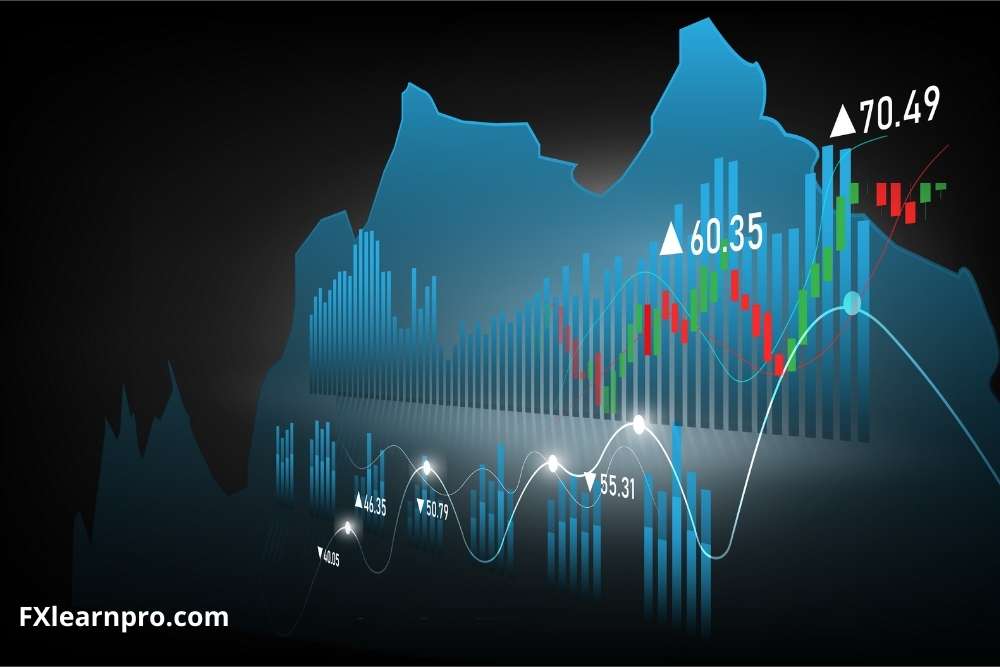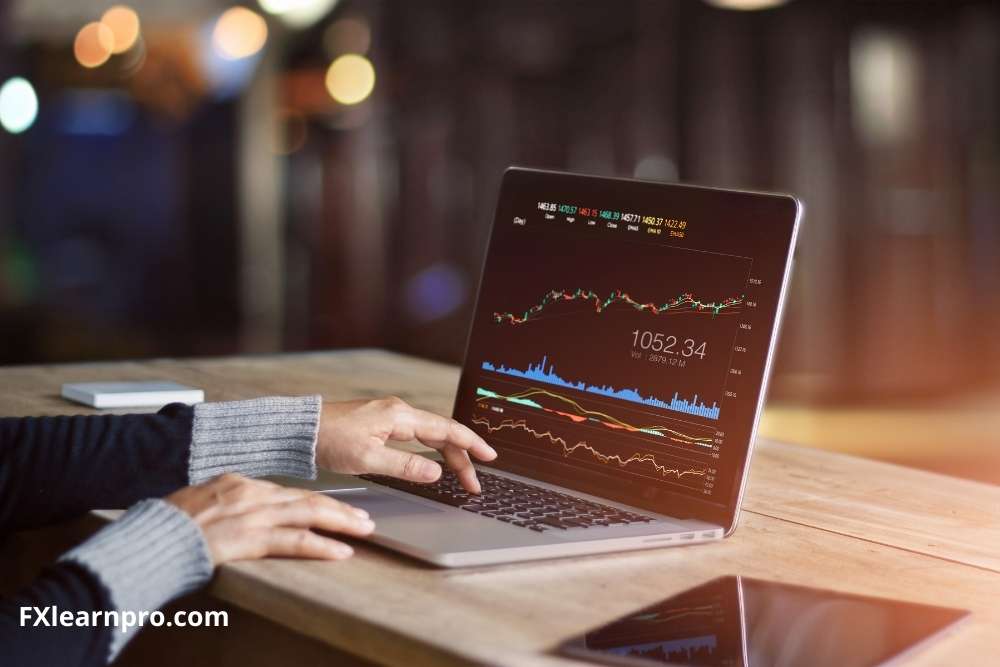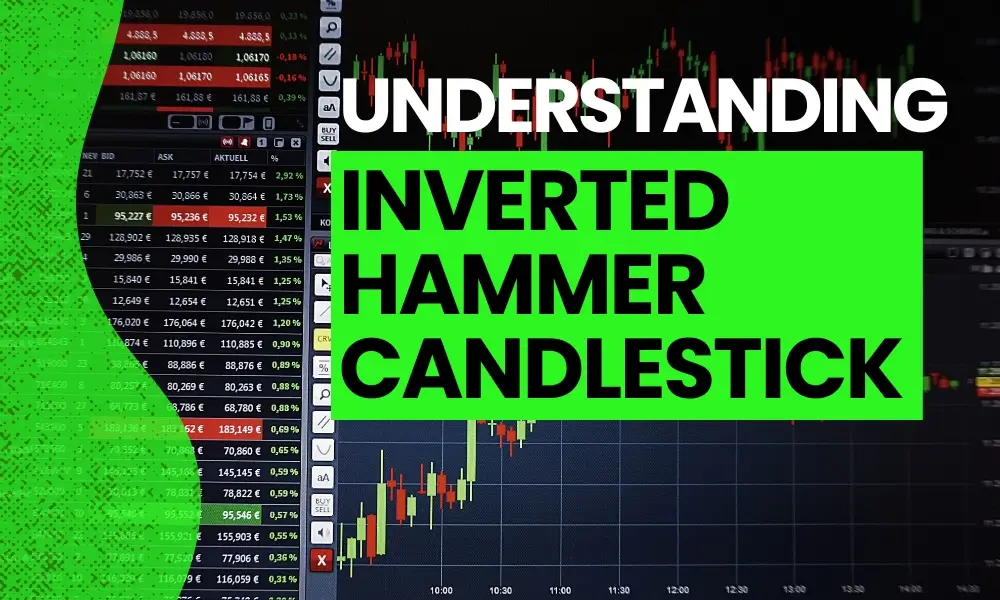Investors and traders are attracted to the forex market due to its volatility, which provides immense opportunities to generate profits. The foreign exchange market is exceptionally large and experiences constant fluctuations, making it an appealing choice for capital allocation.
Traders frequently enter and exit positions within seconds, taking advantage of the market’s fluctuations. This heightened interest in forex trading can be attributed to the potential for significant gains. Effective brokers play a vital role by offering favourable deals and valuable information that enhances investment outcomes. Devising a well-thought-out plan can help individuals sustain their presence in the forex market.
The certain growing interest in understanding how forex traders generate income and increased attention given to the currency market is seen in the high search engines like Google and Bing.
Buying and Selling currencies in the Forex Market?
It is important to understand that the forex market is influenced by large-scale industries, multinational corporations, and significant business entities with traders and investors being the primary player.This creates a vast network of individuals involved in forex trading.
Furthermore, it is essential to note that currency exchange is mandatory for import and export activities, as it must align with the current valuation.
Even without the active participation of local individuals in trading, the forex market is poised to expand and reap benefits from various angles.
What is Forex Trading?
It is essential to understand forex trading to understand the forex market. Forex trading involves the buying and selling of currencies from different nation states. The platform where these currency exchanges occur is referred to as either an exchange or a broker, and collectively, these activities form the forex market.
There are various approaches for traders to engage in forex trading. As an investor, one should be aware of the advantages of participating in the forex market and how it can potentially increase your investments.
Currencies serve as a means of purchasing goods and services in Forex Trading. Therefore, a currency that is widely accepted and used in the market becomes more valuable and robust.
The US dollar holds the highest demand among fiat currencies globally due to its utility. Thus, a significant portion of forex trading revolves around the US dollar.
A country that possesses a substantial reserve of US dollars is considered financially stable. Consequently, businesses on a larger scale aim to conduct transactions and receive payments in the form of US dollars.
Understanding Forex Trading
Prior to the internet era, the forex market was predominantly accessed by a limited number of individual investors. Currency trading was primarily restricted to high-net-worth individuals, hedge funds, and multinational corporations.
Retail brokers have emerged in response, offering services tailored to these traders. This has made it easier for individuals to access the forex market compared to before.
Plus, Brokerage firms have been providing services at affordable prices, attracting the attention of individual investors. Many brokers also offer traders the option to trade with high leverage, enabling them to control larger trades with a relatively small amount of money in their accounts.
Unlike centralised financial exchanges like the NYSE, LSE, or NASDAQ, the forex market operates in a decentralised manner without a physical building. Anyone can engage in forex trading with the assistance of brokers such as Phoenix Ltd, Modmount, Ellandroad Capital, XPro Markets, InvestFW, Capitalix and others.
However, compared to other financial markets, the forex market retains an element of opacity. Traders are not supposed to disclose the amount or identity involved in over-the-counter trading. The value of a currency is influenced by various policies and steps taken by major financial institutions.
Interestingly, traders can engage in forex trading either individually or by trading currency pairs. Additionally, investors can trade alongside other financial instruments, using forex currencies to create a diversified portfolio.
Different Types of Forex Market
There are various types of forex markets that offer different ways of trading currencies. Some of these markets include the spot market, forwards market, and futures market.
Spot Market:
The spot market is the primary market for forex trading. It is where individuals and companies bid, buy, and sell currencies for profit, based on the current trading price.
The value of a currency in the spot market is determined by various factors such as economic performance, interest rates, political pressures, and ideological inclinations influence the spot forex market. Understanding this market can be complex due to the interplay of these factors and currency perceptions.
Forwards Market:
Contracts are traded over the counter between two parties where they negotiate and agree on the terms of the contract.
In the forwards market, actual currencies are not exchanged. Instead, the market provides a way for participants to protect against currency risks. This feature ensures that traders can earn profits from their investments without incurring losses.
Futures Market:
The futures market involves the buying and selling of futures contracts based on standardised terms and settlement dates. Futures contracts come with specific details, including minimum price increments, settlement and delivery dates, and the number of units traded.
Each of these forex markets offers unique characteristics and opportunities for traders to engage in currency trading and manage risks.
What is Forex Hedging?
Fluctuations and volatilities in the forex market, as well as other financial markets, can introduce risks for individuals and businesses engaged in international trade or rendering services. During these transactions, buying or selling goods, they are exposed to currency risks.
Forex trading offers opportunities to mitigate these risks through currency hedging. By engaging in hedging strategies, traders can fix the exchange rate for future transactions, thereby protecting themselves from potential adverse currency movements.
One common approach for traders is to buy and sell currencies in the swap or forwards market ahead of time, aiming to achieve their desired target.
This allows traders to secure a favourable exchange rate and minimise the impact of currency fluctuations. By entering into these contracts, traders can effectively manage their exposure to currency risks.
What is leverage in Forex Trading?
Leverage in Forex refers to the practice of borrowing funds from a broker to increase the trading capital available to a trader beyond their initial deposit. Leverage comes in a ratio as 1:100 or 1:500.
For example, with a leverage ratio of 1:100, a trader can control a position size that is 100 times larger than their deposited funds. Leverage allows traders to amplify their potential profits, as even small price movements can result in significant gains when trading with larger positions.
However, it’s important to note that leverage also magnifies potential losses. If a trade moves against the trader, losses will be multiplied in proportion to the leverage ratio.
Therefore, while leverage can enhance potential returns, it also carries increased risk. Traders should exercise caution and employ risk management strategies when utilising leverage in forex trading.
Forex Tips for Beginners
For beginners in the forex market, it is crucial to focus on the following tips to enhance their trading experience:
Educate Yourself:
Gain a strong foundation in forex trading by acquiring knowledge about the market. Research how the forex market reacts to different situations and stay updated on political and economic events that can impact currency movements. Investing time in learning will save you from potential losses and help you make informed decisions.
Choose a Reliable Broker:
Take the time to search for reputable brokers that offer reliable forex services. Verify their registration and licence numbers, as this indicates their legitimacy. Additionally, check the regulatory authority overseeing the broker’s operations. A regulated broker provides a safer trading environment. Consider factors such as spreads, commission charges, terms and conditions, and available features that suit your trading needs. Only proceed with a broker when you are satisfied with their offerings.
Practice Risk Management:
Implement effective risk management strategies to protect your capital. This includes setting stop-loss orders to limit potential losses on trades, using appropriate position sizing, and avoiding excessive leverage. Understanding and managing risk is essential for long-term success in forex trading.
Start with a Demo Account:
Begin your forex trading journey by practising with a demo account provided by your chosen broker. This allows you to familiarise yourself with the trading platform, test different strategies, and gain practical experience without risking real money.
Develop a Trading Plan:
Create a well-defined trading plan that outlines your trading goals, risk tolerance, preferred trading style, and specific strategies. Stick to your plan and avoid impulsive decisions driven by emotions.
Start Small:
As a beginner, start with smaller trade sizes and gradually increase as you gain more experience and confidence. It is important to understand that trading forex involves both potential profits and losses.
Maintain Discipline:
Discipline is crucial in forex trading. Follow your trading plan, avoid making emotional decisions, and control your risk exposure. Stick to your trading strategies and avoid chasing quick profits or revenge trading after losses.
Remember that forex trading requires continuous learning, practice, and experience. Be patient, persistent, and maintain a realistic approach to achieve long-term success in the forex market.
What are Spreads and Pips in Forex trading?
The spread in forex refers to the difference between the buy and sell prices of a currency pair. It is a small cost incorporated into the quoted prices for every trade. Variance between the buy and sell prices represents the spread or the bid/ask spread.
The spread is typically measured in pips, which are small price movements. In most currency pairs, a pip is equivalent to the fourth decimal place, except for pairs involving the Japanese Yen, where it represents the second decimal place. Changes in the spread are denoted by fluctuations in the pips.
Spread alone does not determine the total cost of the trade. The lot size, i.e, the volume of the trade, also plays a role in the overall cost. The combination of the spread and lot size will determine the total expenses associated with your trade.
Conclusion:-
As a beginner trader in forex, it is crucial to acquire a comprehensive understanding of the financial market. Additionally, selecting reputable brokers like Capitalix, InvestFW, TradeEU, and Equiity who offer excellent features for forex trading, can be beneficial.
Starting with a demo account is highly recommended as it allows you to practice trading in a risk-free environment. This enables you to familiarize yourself with the trading platform, test various strategies, and gain hands-on experience without risking real money.
Applying effective trading strategies is essential for maximizing profits in forex trading. Remember, forex trading requires patience, discipline, and continuous learning. It is a journey that involves gaining experience and refining your skills over time. By leveraging the features provided by reputable brokers and practicing with demo accounts, you can enhance your understanding and proficiency in forex trading.
FAQ’s
- What is the margin in forex trading?
The small amount of capital required to open and maintain a new position.
- What is swing trading in forex?
Swing Trading is a trading style used by forex traders who hold their trades for several days to profit from price swings.
- What is swap in forex trading?
Swap is the interest that traders either earn or pay for a trader that is opened overnight.
- What is forex day trading?
Opening and closing of positions within the trading day is known as forex day trading.
- What are pips in forex trading?
Pips in forex trading is the smallest unit price move that an exchange rate can make based on the forex market.











